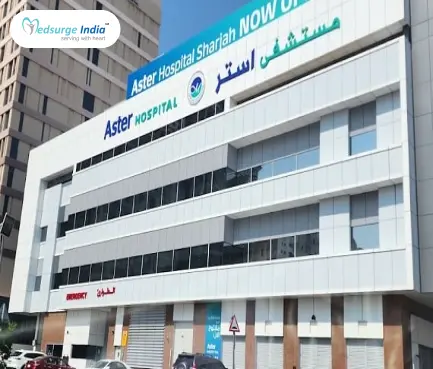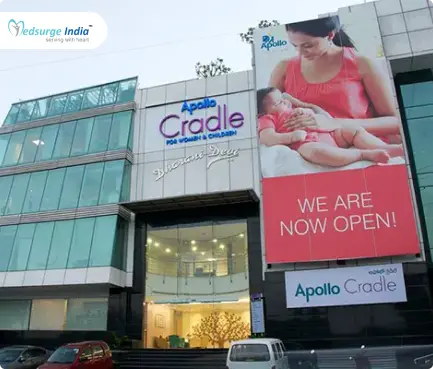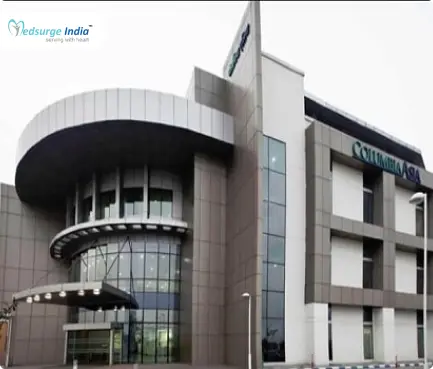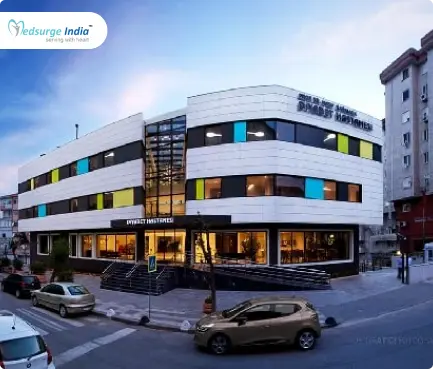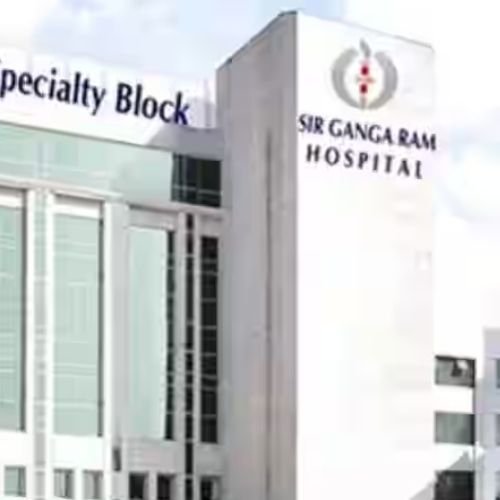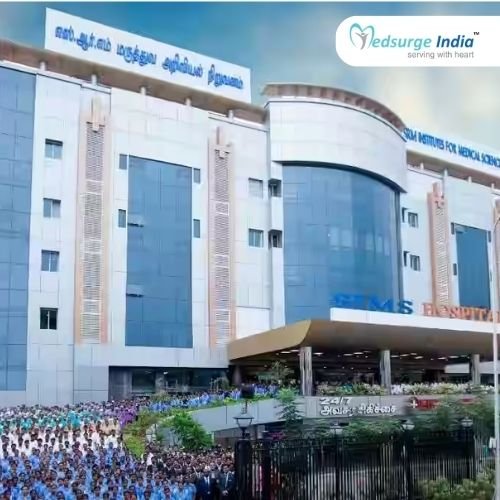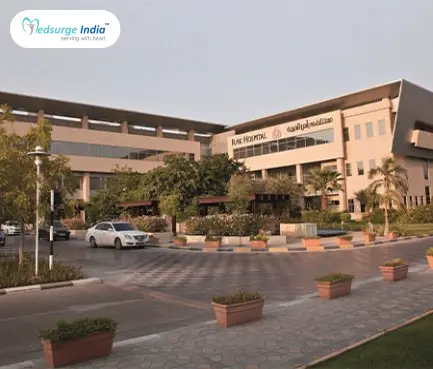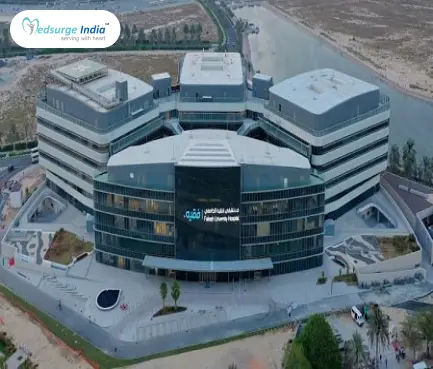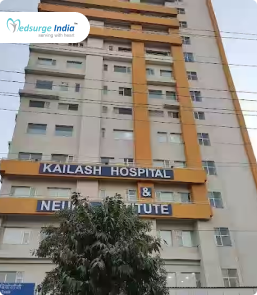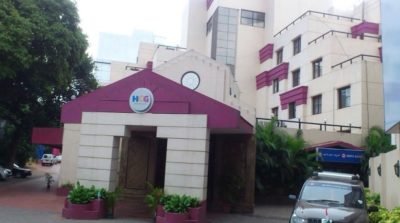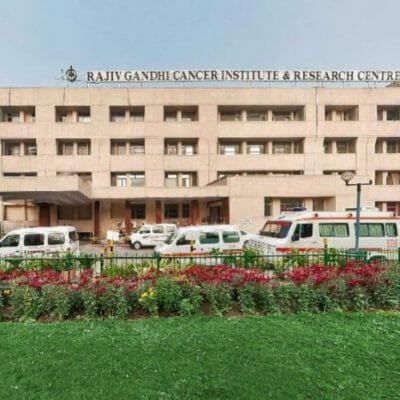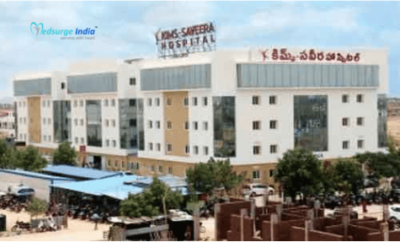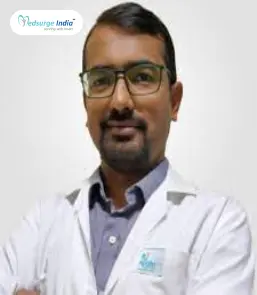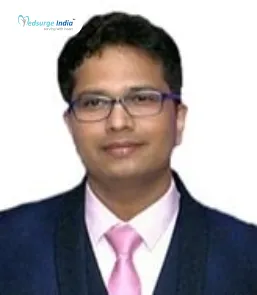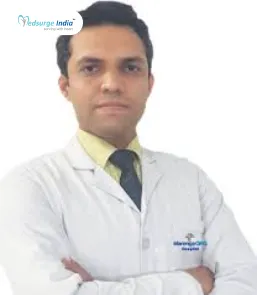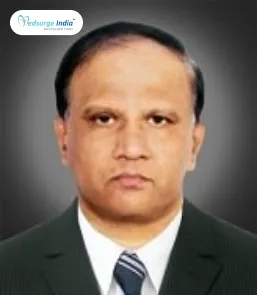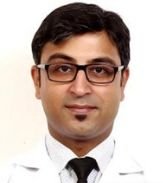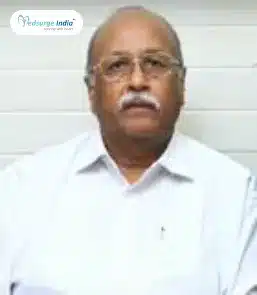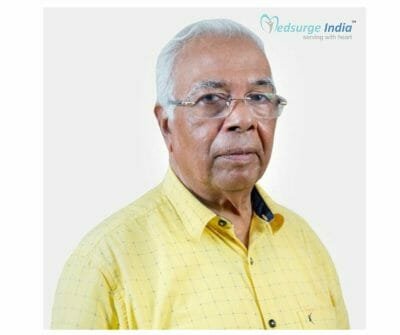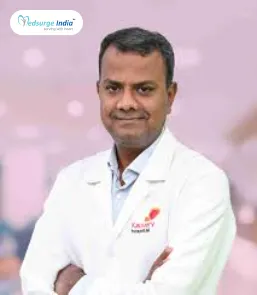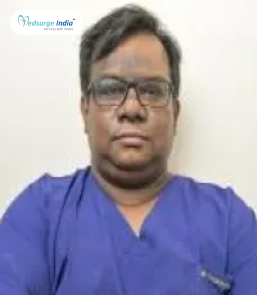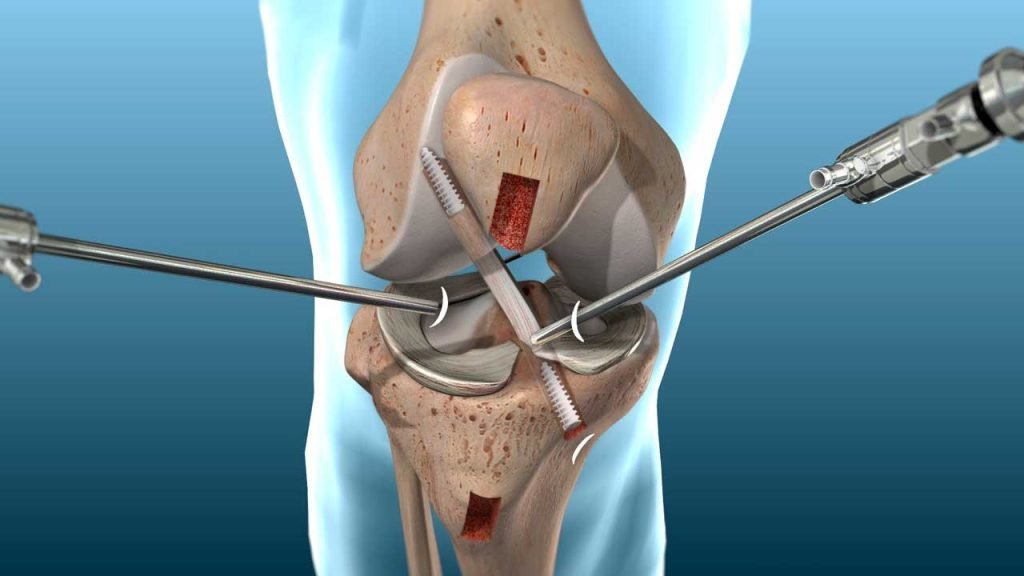
ACL reconstruction is a surgical procedure that replaces a torn anterior cruciate ligament (ACL), a major ligament in your knee. ACL injuries are most common in sports that require quick pauses and changes of direction, such as soccer, football, basketball, and volleyball.
The cost of anterior cruciate ligament (ACL) reconstruction surgery in India is one-sixth of what it would be in the United States, the United Kingdom, or Thailand.
ACL reconstruction surgery in India is determined by the type of procedure, surgeon, and facility where the surgery is performed. To ensure the best possible treatment plan, a pre-evaluation is performed to determine the patient’s overall health.
What is ACL Injury?
ACL is an abbreviation for the anterior cruciate ligament. Reconstruction is a type of surgery that replaces an important ligament in the patient’s knee, the anterior cruciate ligament (ACL). ACL injuries are most common in sports that involve quick direction changes, jumps, fast running, and sudden stops, such as volleyball, soccer, basketball, hockey, skiing, and football. ACL injuries occur when the ACL is stretched and consequently torn off.
The ACL is an important part of the knee because it helps in binding and stabilizing the knee. It is positioned between the tibia and the femur bones and prevents the tibia from slipping. Its primary function is to provide complete knee strength when the knee moves from one side to the other side.
Injuries to the ACL may cause pain or difficulty with sports, walking, jumping, or running. ACL injuries can take a very long time to heal and necessarily require ongoing doctor consultations and physiotherapy. If the ACL damage is severe, the doctor will recommend that the ACL be replaced surgically, especially in athletes and young people.
What is ACL Reconstruction Surgery?
The anterior cruciate ligament (ACL) is repaired or reconstructed during ACL surgery (ACL). The ACL is a crucial soft-tissue structure in the knee that connects the femur and tibia. ACL tears, whether partial or complete, are common injuries among athletes. Sports medicine physicians and orthopedic surgeons typically treat complete ACL tears with ACL reconstruction surgery in India, in which the torn ligament is replaced with a tissue graft to mimic the natural ACL.
The need for surgery is determined by the severity of the ACL tear and the patient’s lifestyle. An ACL that has been completely torn cannot heal on its own. However, studies have shown that in some patients with a partial tear of the ACL, the ligament may heal without the need for surgery.
Graft Selection for ACL Reconstruction
The surgical ACL Reconstruction is done with the help of grafts. And these grafts could be as follows:
- Autografts: These are tendons taken from the patient’s own body, usually the quadriceps ligament, the hamstring ligament, or the patellar ligament.
- Allograft: tendon is harvested from the deceased donor. Typically, autografts are preferred over allografts because the probability of breaking again is minimal, as the possibilities of optional contamination are also less. Hamstring ligament autografts have an additional advantage in that they recover after some time, making the alliance more sustainable.
Helpful – The Importance of Orthopedic Surgeon
What Are the Symptoms of an ACL injury?
If you read regular articles on the ACL Rupture concept, your knowledge is limited to the fact that experiencing a popping noise in the knees is common. This, however, does not occur in patients whose band of tissue is damaged. The following are some of the more common symptoms of ACL Injury :
- Pain: Minor injuries may not cause pain, but you may experience soreness along your knee joint line. While some people have difficulty standing or putting pressure on the injured leg.
- Swelling: This is the most likely to happen within the first 24 hours of an injury. Normal people apply ice to their knees and elevate their legs by placing them on a pillow.
- Walking Difficulties: This is another symptom that makes you believe you are losing your knee joint sooner than you should. You should avoid putting pressure on your injured leg in this situation.
Less Range of Motion: When the ACL is torn, some people experience difficulty bending and flexing their knees in comparison to the normal process of knee bending.
ACL Reconstruction Surgery Cost in India
ACL Reconstruction Surgery Cost in India starts from USD 3500. For ACL Reconstruction Surgery in India, the expenses are subject to variation based on the patient’s condition and the specific treatment approach chosen by the doctor following the results obtained.
ACL Reconstruction Surgery Cost in Various Cities in India
| Cities | Starting Price |
| Delhi | USD 3500 |
| Gurgaon | USD 3500 |
| Noida | USD 3500 |
| Mumbai | USD 3700 |
| Hyderabad | USD 3500 |
| Chennai | USD 3500 |
| Kolkata | USD 3500 |
| Bangalore | USD 3700 |
Please note that the pricing and the treatment for ACL Reconstruction Surgery cost in India will vary depending on the patient’s choice and other various factors.
Factors That Can Affect ACL Reconstruction Surgery Cost in India
The following here are some variables that can affect ACL Reconstruction Surgery Cost in India:
- Medication costs.
- Duration of treatment.
- Geographical location.
- Hospitalization expenses.
- Government policies and subsidies.
- Medical tourism packages.
- Hospital reputation and infrastructure.
- The expertise and experience of medical professionals.
- The type and frequency of diagnostic procedures.
- The choice of treatment modality.
In addition, the quality and level of medical care and facilities offered are on par with renowned healthcare institutions worldwide, even after factoring in the costs of accommodation, meals, and transportation. Moreover, under the guidance of highly proficient doctors, Medsurge India ensures that patients receive the most affordable ACL Reconstruction Surgery Cost in India.
How the Diagnosis of ACL Rupture is Done?
To diagnose an ACL rupture, you must consult an experienced orthopedic surgeon because they are the only ones who are skilled, proficient, and understand this injury.
However, your surgeon may recommend the following test for the diagnosis of ACL rupture:
- Clinical Examination: The patient was taken to the doctor so that he or she can examine you physically to determine the type of injury you have by learning the function of the knee joint by moving it in various positions.
- Pivot Shift Test: The main test used to diagnose ACL injury is to evaluate the instability. If the test is positive, a sublimation will occur at 20 to 40 degrees of flexion, indicating that the ACL is damaged.
- Anterior Drawer Test: This test is performed when an ACL rupture is suspected. The doctor will direct you to lie on your back and bend your hips or knees at a specific angle. The doctor then places his hand on various parts of your leg to determine whether the moment of your bone is normal or not in order to identify ACL Damage.
- Lachman Test: This test is used by orthopedists to diagnose ACL cracks. If the test is positive, there will be increased forward/upward development of the tibia and a significant delicate end moment when this movement closes.
The first and most an injured patient can do is to tell the doctor about the exact causes of their knee injury. In addition, the doctor may order the following tests:
- Complete medical examination, including X-rays to determine the fracture.
- The routine test determines whether you are physically fit for the surgery.
- The MRI is used to confirm the ACL injury so that the damaged knee evaluation can be completed effectively.
Get Free Cost Estimation
Procedure
How ACL Reconstruction Surgery is Performed?
Before the Procedure
- You’ll most likely have several weeks of physical therapy before your surgery. Prior to surgery, the goal is to reduce pain and swelling, restore the full range of motion in your knee, and strengthen muscles. Patients who went into surgery with a stiff, swollen knee may not regain full range of motion.
- Because ACL reconstruction is an outpatient procedure, you can go home the same day. Make arrangements for someone to drive you home.
- Inform your surgeon of any medications or dietary supplements you are taking. If you regularly take blood-thinning medications, your doctor may advise you to discontinue them at least one week before surgery to reduce your risk of bleeding.
- Follow your doctor’s instructions regarding when you should stop eating, drinking, and taking any medications the night before your surgery.
During the Procedure
- Because general anesthesia is typically used during ACL reconstruction, you will be completely unconscious throughout the procedure. ACL reconstruction surgery in India is typically performed through a series of small incisions, one to accommodate a thin, tube-like video camera and others to allow surgical instruments access to the joint space.
- Your surgeon will remove the damaged ligament and replace it with a tendon segment. This replacement tissue is known as a graft, and it is derived from another part of your knee or a tendon from a deceased donor.
- Your surgeon will drill sockets or tunnels into your thighbone and shinbone to precise position the graft, which is then secured to your bones with screws or other devices. The graft will act as a scaffolding for the growth of new ligament tissue.
After the Procedure
- You can go home the same day once you recover from anesthesia. You’ll practice walking with crutches before going home, and your surgeon may ask you to wear a knee brace or splint to protect the graft.
- Your doctor will give you detailed instructions on how to manage swelling and pain following surgery. In general, you should elevate your leg, apply a cold wrap or ice to your knee, and rest as much as possible.
- Over-the-counter medications for pain relief include acetaminophen, ibuprofen, and naproxen sodium. Stronger medications, such as meloxicam, tramadol, or oxycodone, may be prescribed by your doctor. If opioids are prescribed, they should only be used for severe pain because they have numerous side effects and a high risk of addiction.
- Follow your surgeon’s instructions regarding when to ice your knee, how long to use crutches, and when you can bear weight on your knee. You’ll also be informed when you can shower or bathe, when to change wound dressings, and how to handle post-surgery care.
- After ACL surgery, progressive physical therapy helps to strengthen the muscles around your knee and improve flexibility. A physical therapist will show you how to perform exercises that you will do either under supervision or at home. Following the rehabilitation plan is essential for proper healing and the best possible results.
What Are the Risks Associated with ACL Reconstruction Surgery?
An ACL reconstruction is a surgical procedure that replaces the anterior cruciate ligament in the knee. The procedure has some risks and limitations, which are listed below:
- Bleeding from the surgical site
- Clots in the blood
- Surgery-related infection
- Even after ACL reconstruction surgery, there is persistent knee pain, weakness, or stiffness.
- Loss of the ability or discomfort in moving the knee
- Failure to achieve symptom relief
- The graft is not healing properly
- ACL tears in children increase the probability of growth plate injuries. These plates are attached to the bones in the legs and arms. These growth plates help in bone formation. These growth plates can cause injuries and lead to bone shortening.
Aside from the risks mentioned above, the AAOS (American Association of Orthopedic Surgeons) reports that 85% to 95% of ACL reconstruction surgeries have provided complete knee stability, resulting in stupendous conclusions and increased patient satisfaction.
Some patients may have issues with the anesthesia administered prior to surgery. Some patients may experience shortness of breath, nausea, vomiting, or allergic reactions as a result of the anesthesia.
What Is the Recovery Time For ACL Surgery?
Depending on the level of competition and the type of activity, it usually takes six to nine months for a patient to return to sports after an ACL reconstruction.
On the day of surgery, patients can walk with crutches and a leg brace. The patient begins a rehabilitation program soon after surgery to restore knee strength, stability, and range of motion. The rehabilitation process consists of a series of exercises:
- Exercises for strength and range of motion are started early in the recovery period.
- Running exercises begin around the period of four months.
- Pivoting exercises begin around the period of five months.
- Returning to competitive sports can begin as soon as six months.
The level of pain associated with ACL recovery varies, but it is manageable with medication. Recovery time varies from patient to patient as well. The restoration of muscle strength, range of motion, and proprioception of the knee joint is used to determine when a patient has fully recovered.
Know More –
Top Orthopedic Surgeons in India
The Most Important Frequently Asked Questions
Q: What’s the Standard Expense of ACL Reconstruction Surgery in India?
A: Get ready to pay around $3500 to $4500 for the ACL Surgery. In any case, this expense is liable to change and altogether relies upon the nature of the medical clinic, patient emergency, and ICU unit charges you select.
Q: What Causes ACL Rupture?
A: It’s the most widely recognized tendon injury that happens in the knee of the individual who plays sports. It happens when you find a workable pace the high-power physical action that requires knee pressure.
Q: Do All the ACL Tears Require Medical Procedures?
Not all ACL Tears requests medical procedure. However, you have to go for the medical procedure if :
- There’s a finished ACL tear
- You’re a sportsperson and require knee solidarity to play
- There’s a physical issue in the other piece of the knee
- Went to physiotherapy and recovery without no improvement in torment and joint solidness
Q: How Dangerous Is the ACL Reconstruction Medical Procedure?
A: ACL Reconstruction surgery is totally safe. Be that as it may, the complexities may emerge like :
- Diseases
- Blood thickening in legs
- Harm to different vessels, and nerves during a medical procedure
- In certain patients, screws may cause the issue and require removal.
- In a few, they might be an issue to join the ligament.
Q: What Are the Elements on Which the Completion of ACL Surgery Depends?
A: The primary components influencing the completion of ACL Surgery to rely upon the determination of uniting, the arrangement of the join in the bone passage, and obsession of the join as likewise the postoperative recovery.
Q: To What Extent Would You Be Able to Join Sports After ACL Reconstruction Surgery?
A: Prepare to drop everything for 8 to a year alongside a thorough physical assessment to completely recoup and join your preferred sports.
Q: Is There Any Approach to Forestall the ACL Injury?
A: Truly!! Perform fortifying activity that requests your knee muscle to make a move. Wear the best possible athletic equipment on the off chance that you play sports, which require pressure on knees while bouncing, or running.
Q: What’s the Completion Pace of ACL Reconstructive Surgery?
A: With around 90%+ completion rate, ACL Reconstructive Surgery is a normal medical procedure with a much higher achievement rate than some other medical procedures.
Top Hospitals for ACL Reconstruction Surgery in India
Top Doctors for Orthopedics
Dr. Ranjan Burnwal
Consultant
Experience: 12 years of experience
Apollo Spectra Hospital, Mumbai
Mumbai, India
Dr. Ankit Chawla
Consultant
Experience: 12 years of experience
Marengo Asia Hospitals, Faridabad
Faridabad, India
Dr. Dhiraj Gupta
Consultant
Experience: 10 years of experience
Ganga Care Hospital Limited, Nagpur
Nagpur, India
Dr. Arun G S
Experience: 9+ years of experience
Sahyadri Narayana Multispeciality Hospital, Harakere, Shimoga
Shimoga, India
Dr. Romeet Mukherjee
Experience: 7+ years of experience
NH Rabindranath Tagore International Institute of Cardiac Sciences, Kolkata
Kolkata, India
Dr. T. Chiranjeevi
Consultant
Experience: 31 years of experience
KIMS Sunshine Hospitals, Begumpet
Hyderabad, India
Dr. Nitish Bhan
Consultant , MBBS, DNB, MCh, Fellowship
Experience: 13 years of experience
Continental Hospitals, Hyderabad
Hyderabad, India
Dr. Ramesh Babu C
Arthoscopy and Sports Medicine Senior Consultant
Experience: 39 years of experience
Prashanth Multi Speciality Hospital Chennai
Chennai, India
Dr. S Senthil
Senior Consultant
Experience: 42 years of experience
Fortis Malar Hospital ,Chennai
Chennai, India
Dr. Prashant Arya
Senior Consultant
Experience: 8+ years of experience
Brahmananda Narayana Multispeciality Hospital, Jamshedpur
Jamshedpur, India
Dr. Thiruvengita Prasad G
Consultant
Experience: 21 years of experience
Apollo Specialty Hospital, OMR
Chennai, India
Dr. Gopal Krishan Agrawal
Director
Experience: 45 years of experience
Fortis Hospital Delhi Shalimar Bagh
New Delhi, India
Dr. Indranil Biswas
Senior Consultant
Experience: 21+ years of experience
Narayana Multispeciality Hospital, Barasat, Kolkata
Kolkata, India


